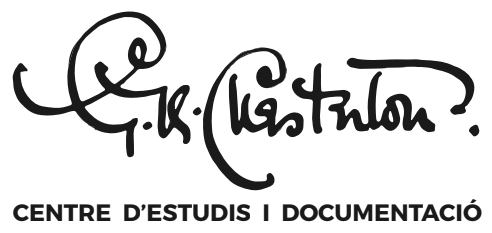Glossary
The glossary includes essential terms related to the person, life, and work of Chesterton. For reasons of space it must inevitably be incomplete. It includes the most important people – family, friends, contemporaries and adversaries -, the most significant places – streets, neighborhoods, buildings, literary, cultural and religious associations – and the most important public activities – conferences, debates, meetings, congresses , election campaigns and travel.
There are currently 8 terms in this directory beginning with the letter R.
Railway Hotel
Hotel in Beaconsfield (Buckinghamshire), no longer in existence, where Catholics celebrated Mass in absence of a church in town; Gilbert converted to Catholicism in this ballroom turned church on 30 July 1922, assisted by Fr John O’Connor and Fr Ignatius Rice.
Reform Club, The
Located at 104 Pall Mall (St James’s, London); Gilbert was a member and often went there.
Rhonda, Lady (1883-1958)
Welsh noblewoman, businesswoman and active suffragette; she was crucial in the history of the women’s suffrage in the United Kingdom; in 1927 she held a public debate with Chesterton on the idle woman; chaired by G. B. Shaw at Kingsway Hall (London), it was broadcast by the BBC.
Rice, Fr. Ignatius (1883-1955)
English Benedictine monk from Douai Abbey; he was head of Douai School (1915-1952); a personal friend of Gilbert, he was crucial in his conversion.
Romeva, Pau (1892-1968)
Educationalist, journalist and writer, as well as first translator of Chesterton into Catalan (Herètics, 1928; Allò que no està bé, 1929); he worked with La Nova Revista in its project of making Chesterton known, and at the newspaper El Matí, for which he translated a good number of Chesterton’s articles and explained his social doctrine, known as “distributism”; in 1936, as a posthumous tribute to Chesterton, he published in the Revista de Catalunya a serialised translation of The Man Who Was Thursday.
Russell, Bertrand (1872-1970)
British polymath, philosopher, logician, mathematician, writer, social critic, political activist and Nobel prize; he considered himself a liberal, a socialist and a pacifist, though he also suggested his sceptical nature made him feel that “I’ve never been any of those things in any profound sense”; in 1935 he held a public debate with Chesterton in the BBC on Who should raise our children?
Russian Revolution
The Russian Revolution was a political process, led by scientific communism, which culminated in 1917 with the overthrow of the tsarist system and the Russian Empire; for the first time, the modern world saw how the working class rose to power and discarded liberalism as the dominant political system, a fact which generated strong political and cultural reactions in the more traditional social circles.
